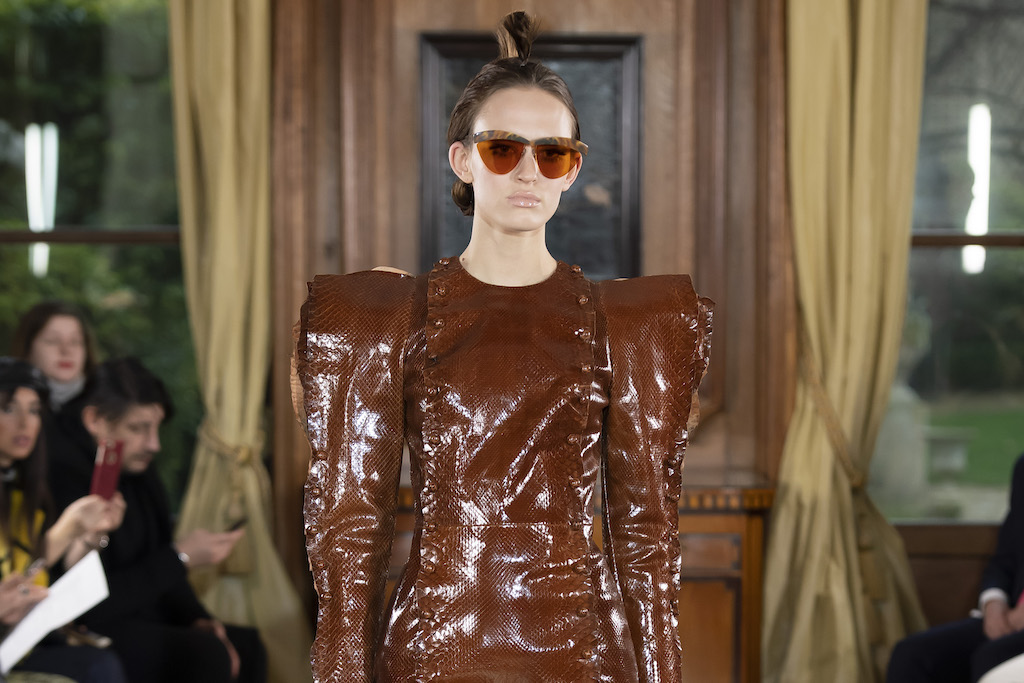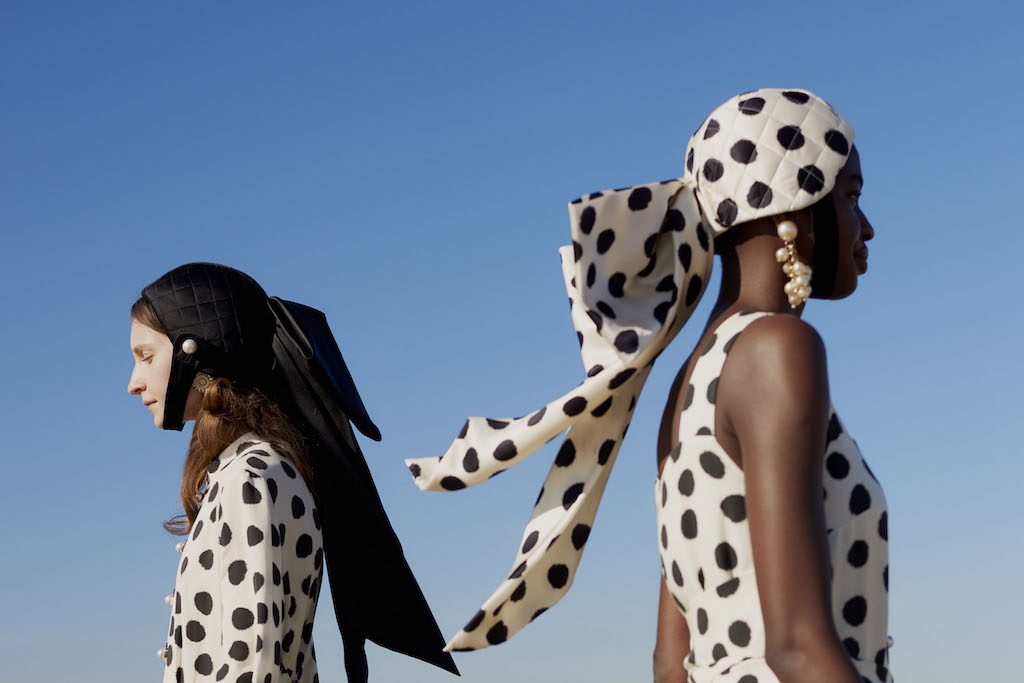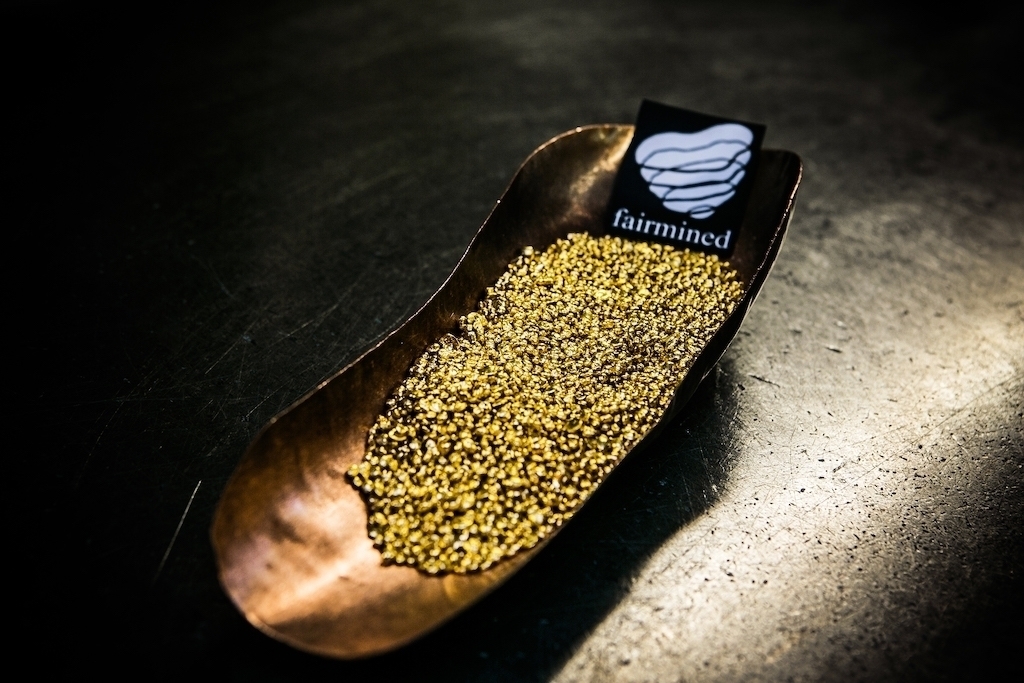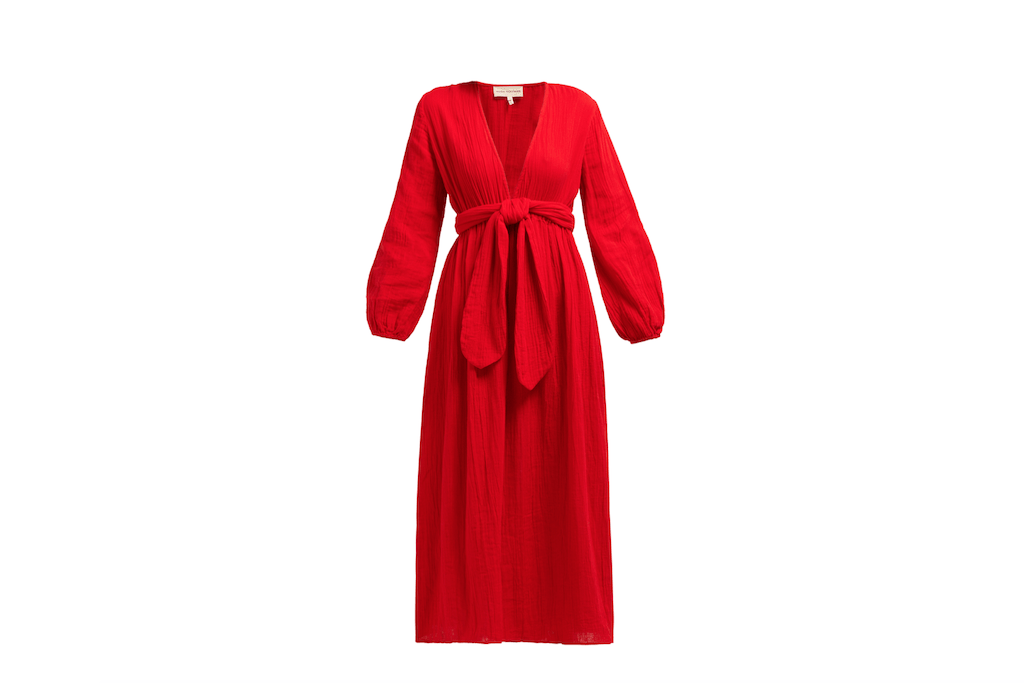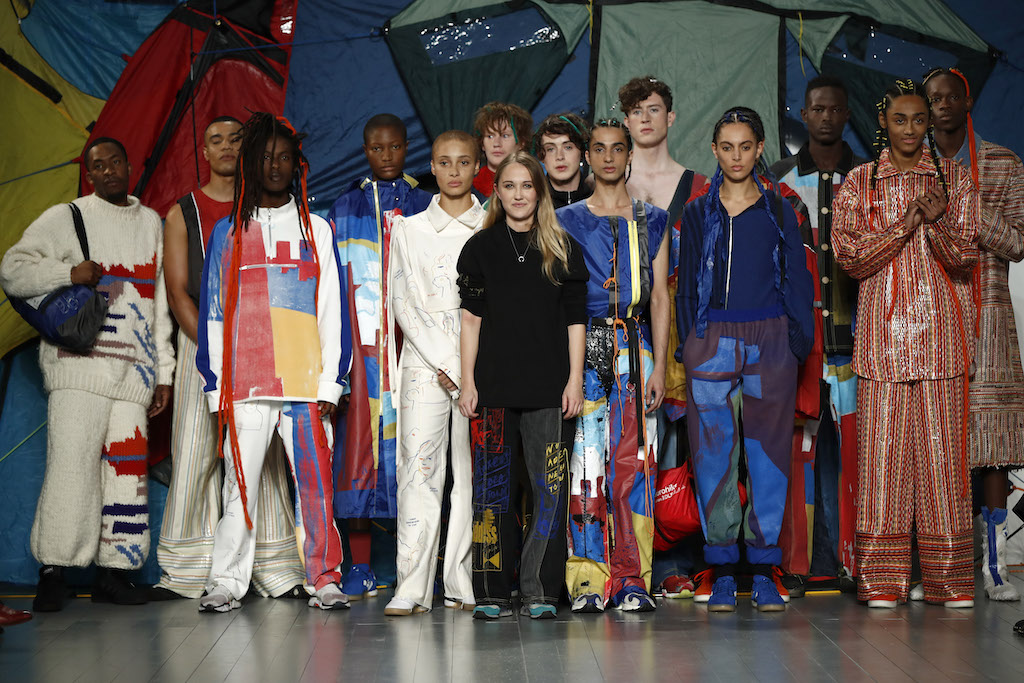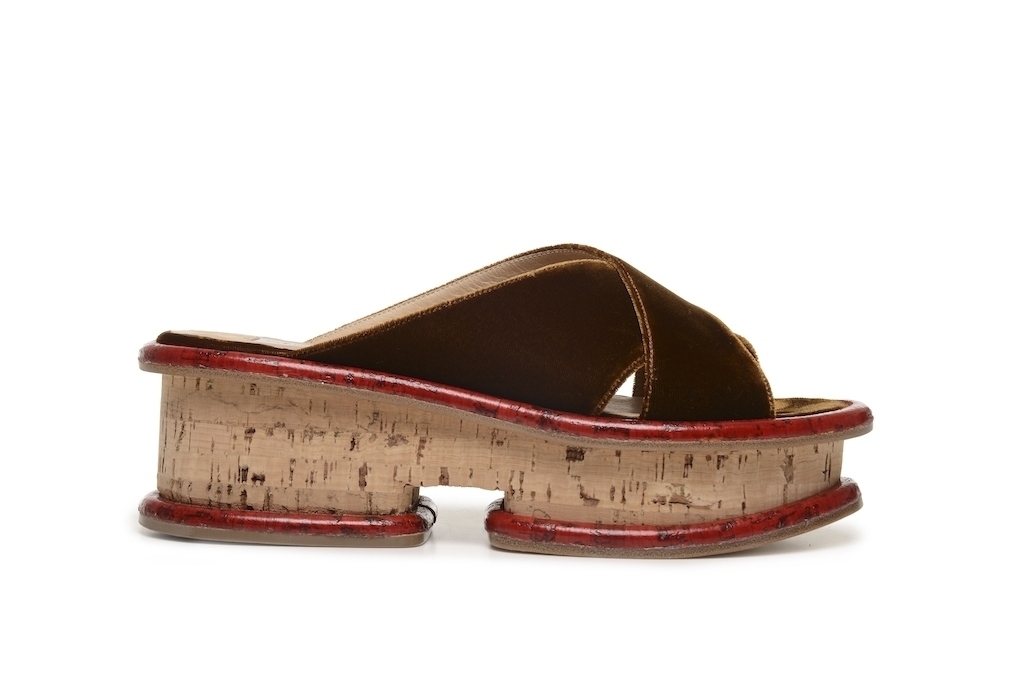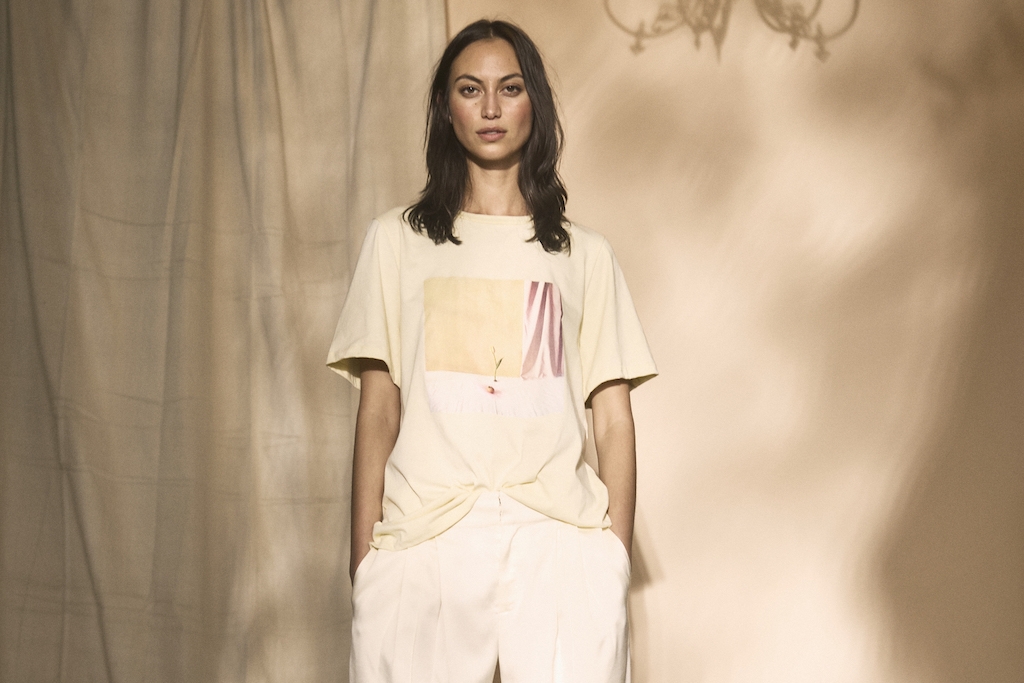Fashion Conscience: 9 Sustainable Luxury Brands to Know
Eco-Age's Dolly Jones shares 9 brands that are paving the way for sustainability in the world of luxury fashion...
This post may contain affiliate links. Learn more
Luxury and sustainability can be happy bedfellows, says Dolly Jones.
A guilty conscience, or lack thereof, is rapidly becoming a barometer of the pleasure we continue to derive from fashion – as the industry becomes as famous for its damage to the environment and lack of ethics as it traditionally has been for superstar designers and their influence on our taste. Some brands are making morals central to their aesthetic, thereby leading the charge of potential success: both in terms of future-proofing their business and giving their customers freedom to enjoy their product unhindered by the emotional drawbacks of culpability.
1. Ronald Van der Kemp
Ronald Van Der Kemp’s habit of buying leftover fabrics from big fashion houses to create entirely unique clothes caught the eye of the Federation de la Couture, which invited him to show on schedule during the Haute Couture collections in January as the ‘world’s first sustainable couture label’ – and subsequently win adulation from critics including Tim Blanks and Sarah Mower. Having worked on the design teams of Bill Blass and Guy Laroche, Van Der Kemp’s epiphany came when he compared the last-a-lifetime couture labels he discovered in vintage stores with the mountains of unneeded clothes being produced both by high street and high fashion brands. His label, founded in 2014, is crafted by artisans using high quality, existing materials. ‘It’s always the highest quality but perhaps it wasn’t exactly the right shade for whomever first bought it,’ he says. ‘That doesn’t matter to me – I don’t design collections with a theme. Each piece is entirely unique. People get excited about the clothes and when they hear about the ethics, it’s a real plus.’ ronaldvanderkemp.com
2. Mother of Pearl
Proof that the East London hipster set is determined to lead the way for fashion’s sustainable revolution, Amy Powney – creative director of Mother of Pearl – is taking the label into new ethical realms via low impact production and fully traceable, organic fabrics that maintain its cutting-edge status. It’s ‘serious fashion not to be worn too seriously,’ says Powney, who dressed Sinead Burke at last year’s British Fashion Awards, counts Jasmine Hemsley among her brand ambassadors, Gwyneth Paltrow as a fan and recently branched into interiors as if to prove how much good can be done in raising the bar for the ethics of luxury. She’s also advising other designers trying to establish their sustainable credentials in an industry that doesn’t make it easy or cheap. motherofpearl.co.uk
3. Chopard
Caroline Scheufele is leading the charge for sustainability in the luxury sector having announced Chopard’s game-changing 100 per cent ethical gold supply chain last July, six years after pledging to transform the business to allow them to ‘know where every piece of our gold comes from’. Now focused on doing the same for Chopard’s gemstones, Scheufele was named Designer of the Year at ethical fashion retailer Maison-de-Mode’s second annual Sustainable Style Gala in LA in February. A true icon of the sustainable revolution, she has proved that to genuinely modernise an established business, the focus of its strategy must be on the people involved in creating it. It’s a lesson any and all businesses benefit from. chopard.com
4. Mara Hoffman
Elegant, chic and colourful, Mara Hoffman’s designs are determinedly sustainable and ethical but maintain an aesthetic that focuses on her customer’s emotional reaction to the clothes – making them doubly desirable. Launched in 2000 because ‘starting my own business made more sense than searching for a corporate job in an industry I already felt I didn’t quite fit into’, she relaunched it in 2015 with a new focus on transparency. ‘I realised that our manufacturing processes were contributing to a mess that my son’s generation was going to inherit, which was a breaking point for me,’ she says. One of the first brands to use REFIBRA, fabric made from sustainably sourced wood pulp and pre-consumer cotton waste, she also designs swimwear using Econyl regenerated nylon – available at matchesfashion.com
5. Stella McCartney
To Stella McCartney there is no sustainability revolution, it simply always was that way. ‘The starting point is not design – the starting point is sustainability,’ she has said, and her brand of superbly luxurious, modern femininity that determinedly ticks every possible ethical box has cut through the industry apparently against all odds, surrounded by naysayers who are all of a sudden hurriedly positioning themselves to follow in her wake. Having proved to the world that vegetarian fashion is not just possible but the essence of desirable, she is currently focused more than ever on discovery – a new partnership with technology innovator Bolt Threads promises as-yet-unknown fabrics that will change the face of fashion once again. She is genuinely fashion’s ‘agent of change’. stellamccartney.com
6. Bethany Williams
Once discovered, ethical fashion is difficult to give up because it’s impossible to ‘unsee’ the damage done by an unconscious attitude to consumerism once the facts are out – and Bethany Williams’ story is at the forefront of proving that the industry can change. Her intensely cool designs are conceived from all manner of sustainable fabrics and created in collaboration with humanitarian charities and initiatives focused on positive social change. Her recent autumn/winter 2019 show featured homeless models (paid market rate), wearing a collection that was produced in collaboration with a women’s shelter in Liverpool to which she will give 20 per cent of the profits. The embodiment of ‘fashion for good’, Williams was awarded this year’s Queen Elizabeth II award by the Duchess of Cornwall in recognition of her ethical approach. bethany-williams.com
7. Gabriela Hearst
Gabriela Hearst’s high luxury reputation wields heavy influence with her global, A-list following and she has thereby positioned herself as a purveyor of actionable change. From stores built without chemicals and plastic-free, minimal waste fashion shows to circular production processes and a philanthropic status that has resulted in long-standing partnerships with Save The Children and Planned Parenthood, she has built her brand from the outset to epitomise what she calls ‘honest luxury’. The first label snapped up by the LVMH Luxury Ventures fund, launched to discover and build iconic brands of the future, Hearst’s is a label with serious clout – plus refined but directional cuts that are as irresistible as they are luxurious. gabrielahearst.com
8. William Vintage
The leading light of the vintage fashion world, William Banks-Blaney founded William Vintage in 2009 and has since sourced dresses from all over the world for Hollywood greats and royalty (most recently dressing the Duchess of Sussex and her bump in Sixties Courreges for her trip to New York). A trip to the Mayfair boutique promises the most personal treatment, as William and his team are as interested in the event you want to buy for as they are in your general attitude, enabling them to search out the right dress for you to wear that will continue its own narrative. With Marie Blanchet, formerly of Vestiaire Collective, now ensconced as CEO, it’s only going to get better. It’s headline fashion with a lasting story. williamvintage.com
9. Maggie Marilyn
Having hit the global radar by dressing the Duchess of Sussex in a white tuxedo dress during the New Zealand Royal Tour, 24-year-old Maggie Marilyn continues to make waves in the upper echelons of the industry in spite of her young age. Since its inception in 2016, it has used only GOTS (Global Organic Textile Standard)-certified fabrics; it’s created entirely by local manufacturers and its focus on innovation is already reaping rewards for customers by way of dresses made of silk originating from rose petals, amongst other revolutionary processes. ‘If we can build fashion from a linear economy into a circular economy like our beautiful living world’s circular model, there is so much opportunity for innovation and commercial prosperity,’ says the fiercely intelligent designer, who also made the grade for Livia Firth’s Green Carpet Challenge recently when the founder of Eco-Age wore her label to the premiere of Mary Poppins II. maggiemarilyn.com
Discover more brands leading the charge at eco-age.com

